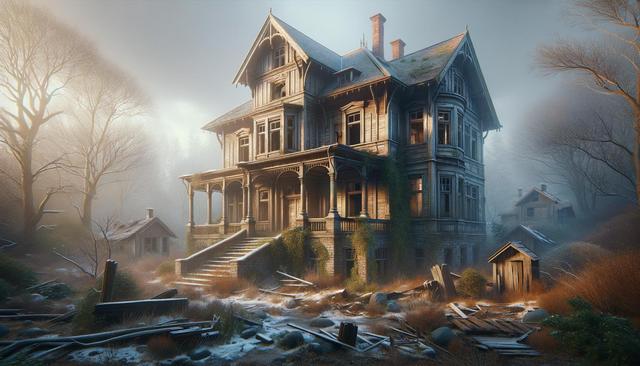The Fate of Abandoned Houses
Abandoned houses are more than just empty shells of former homes—they represent stories left behind, shifting economic landscapes, and opportunities waiting to be rediscovered. When a property is left unattended, it can fall into disrepair rapidly, sometimes becoming a safety hazard or a liability for the community. But what actually happens to these structures? In many cases, they are taken over by local governments through tax foreclosures or left in a legal limbo if the ownership is unclear. This presents both challenges and potential for those interested in property investment or urban revitalization. For those looking for a unique house to buy, these forgotten homes might offer surprising value, especially in areas where real estate demand is beginning to resurface.
Reasons Behind Abandonment
Understanding why houses are abandoned is key to appreciating their potential. Several factors contribute to properties being left behind:
- Economic downturns leading to foreclosure
- Natural disasters rendering homes unlivable
- Inheritance disputes or unclear ownership
- Urban migration and population shifts
In some cities, entire neighborhoods have experienced depopulation, leaving behind vacant homes that no one maintains. These scenarios often create opportunities for those who want to invest in houses for $500 in {city}, especially when local governments offer incentives for revitalization. However, investing in such properties requires thorough research and often the support of reliable house selling agencies that can navigate the legal and logistical hurdles involved in acquiring them.
Legal and Structural Challenges
Abandoned houses can be full of complications. From legal ownership issues to hidden structural problems, potential buyers must approach these properties with caution. Title searches are essential to determine who legally owns the house property, especially when the last known owner is deceased or unreachable. Additionally, the longer a house sits vacant, the more likely it is to suffer from issues like mold, water damage, or vandalism. Therefore, before committing to a purchase, experts recommend:
- Hiring a professional inspector
- Consulting with legal advisors
- Working with experienced house selling agencies
- Reviewing zoning laws and local ordinances
Despite these hurdles, many real estate enthusiasts see the potential in these properties, particularly when prices are significantly below market value.
Opportunities for Investors and Communities
While the risks are real, so are the rewards. Renovating abandoned homes can be a path to affordable homeownership, rental income, or community improvement. Programs in some cities aim to attract investors willing to restore these homes, sometimes offering properties at symbolic prices. For example, there are ongoing initiatives that allow people to invest in houses for $500 in {city}, hoping to revive neighborhoods and increase the local tax base. Benefits of such investment include:
- Low initial cost of acquisition
- Potential for high ROI after renovation
- Contribution to community revitalization
- Long-term rental or resale opportunities
It’s not only investors who benefit—local residents often see improved safety, aesthetics, and property values as these homes are brought back to life.
Finding the Right Paths to Purchase
For those intrigued by the idea of acquiring an abandoned house, the journey starts with information. Local municipal offices often have lists of tax-delinquent properties or public auctions. House selling agencies that specialize in distressed or foreclosed properties can also be valuable partners in identifying a viable house to buy. Platforms that focus on house property in specific regions may highlight opportunities for investment, especially in underdeveloped or transitioning areas. Buyers should be cautious but optimistic, keeping in mind that while not every abandoned house is a hidden gem, some certainly are. The key is due diligence, patience, and a clear understanding of the goals—whether it’s flipping for profit, creating a rental unit, or finding a unique and affordable place to call home.
Conclusion: Turning Neglect into Opportunity
Abandoned houses are not just relics of the past; they are opportunities waiting to be explored. For those willing to navigate the complexities, these properties can offer a unique and cost-effective way to enter the real estate market. Whether you’re an investor looking to restore value or a first-time buyer seeking an affordable house to buy, understanding the landscape is crucial. With the guidance of house selling agencies, knowledge of local laws, and a readiness to face some challenges, transforming an abandoned property into a livable space becomes a realistic goal. In cities where you can invest in houses for $500, these ventures are not only financially accessible but also contribute to broader community renewal. The journey may require effort, but the rewards can be both personal and impactful.




Leave a Reply